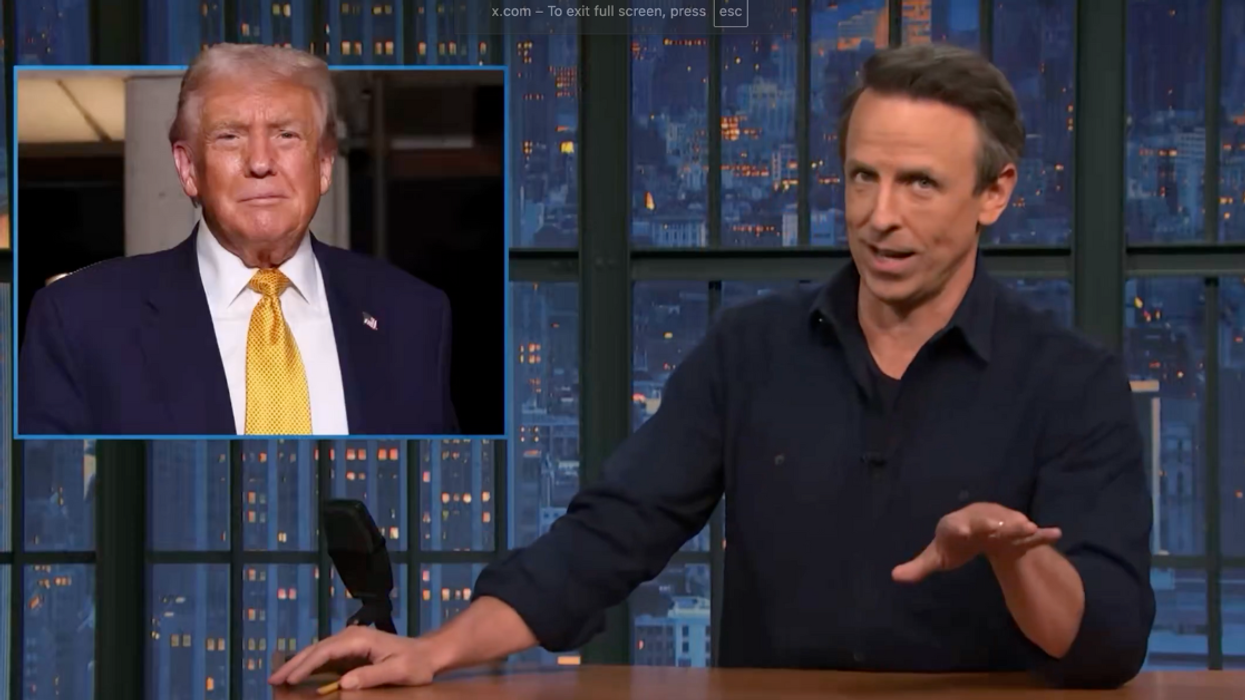The Washington Post is facing criticism for the wording in their headline for an obituary article about Islamic State leader Abu Bakr al-Baghdadi.
President Trump previously announced that Baghdadi was killed Saturday night during a U.S. military raid in northern Syria. Trump claimed that Baghdadi ran into a dead-end tunnel with three of his children as they were pursued by military dogs, and all were killed when Baghdadi detonated a suicide vest.
Originally called a "terrorist-in-chief" by The Post, the headline was later changed to call Baghdadi an "austere religious scholar," and finally "extremist leader."
The move didn't sit well with journalists and politicians alike.
Republicans were particularly vocal with their condemnations of The Post's verbiage, especially those working for Trump's 2020 campaign, including campaign Press Secretary Kayleigh McEnany and Communications Director Tim Murtaugh.
GOP National Spokesperson Elizabeth Harrington also chimed in to slam The Post's obit, calling Baghdadi a "terrorist monster."
Former Press Secretary Sean Spicer condemned the move as well on Twitter.
The Post's Vice President of Communications Kristine Coratti Kelly responded to the backlash on Twitter, admitting that "the headline should never have read that way."
Soon, #WaPoDeathNotices started to trend as conservatives trolled the publication with fake headlines for infamously villainous characters, both real and fictional.
Considering how Trump and his administration love to spin things to their advantage, the conservative backlash is unsurprising if not somewhat ironic.
But with his prior call for all federal government agencies to cancel their subscriptions to both The Post and The New York Times, Trump won't have to see their headlines for much longer.
The film The Post is available here, starring Meryl Streep and based on the true story of Washington Post publisher and journalist Katharine Graham uncovering a scandal spanning four Presidents.








 @realDonaldTrump/Truth Social
@realDonaldTrump/Truth Social





 @rootednjoyy/TikTok
@rootednjoyy/TikTok @rootednjoyy/TikTok
@rootednjoyy/TikTok @rootednjoyy/TikTok
@rootednjoyy/TikTok @rootednjoyy/TikTok
@rootednjoyy/TikTok @rootednjoyy/TikTok
@rootednjoyy/TikTok @rootednjoyy/TikTok
@rootednjoyy/TikTok @rootednjoyy/TikTok
@rootednjoyy/TikTok @rootednjoyy/TikTok
@rootednjoyy/TikTok @rootednjoyy/TikTok
@rootednjoyy/TikTok @rootednjoyy/TikTok
@rootednjoyy/TikTok @rootednjoyy/TikTok
@rootednjoyy/TikTok @rootednjoyy/TikTok
@rootednjoyy/TikTok @rootednjoyy/TikTok
@rootednjoyy/TikTok @rootednjoyy/TikTok
@rootednjoyy/TikTok
 @rootednjoyy/TikTok
@rootednjoyy/TikTok @rootednjoyy/TikTok
@rootednjoyy/TikTok @rootednjoyy/TikTok
@rootednjoyy/TikTok @rootednjoyy/TikTok
@rootednjoyy/TikTok @rootednjoyy/TikTok
@rootednjoyy/TikTok @rootednjoyy/TikTok
@rootednjoyy/TikTok @rootednjoyy/TikTok
@rootednjoyy/TikTok @rootednjoyy/TikTok
@rootednjoyy/TikTok @rootednjoyy/TikTok
@rootednjoyy/TikTok @rootednjoyy/TikTok
@rootednjoyy/TikTok
 @BarryMu38294164/X
@BarryMu38294164/X
